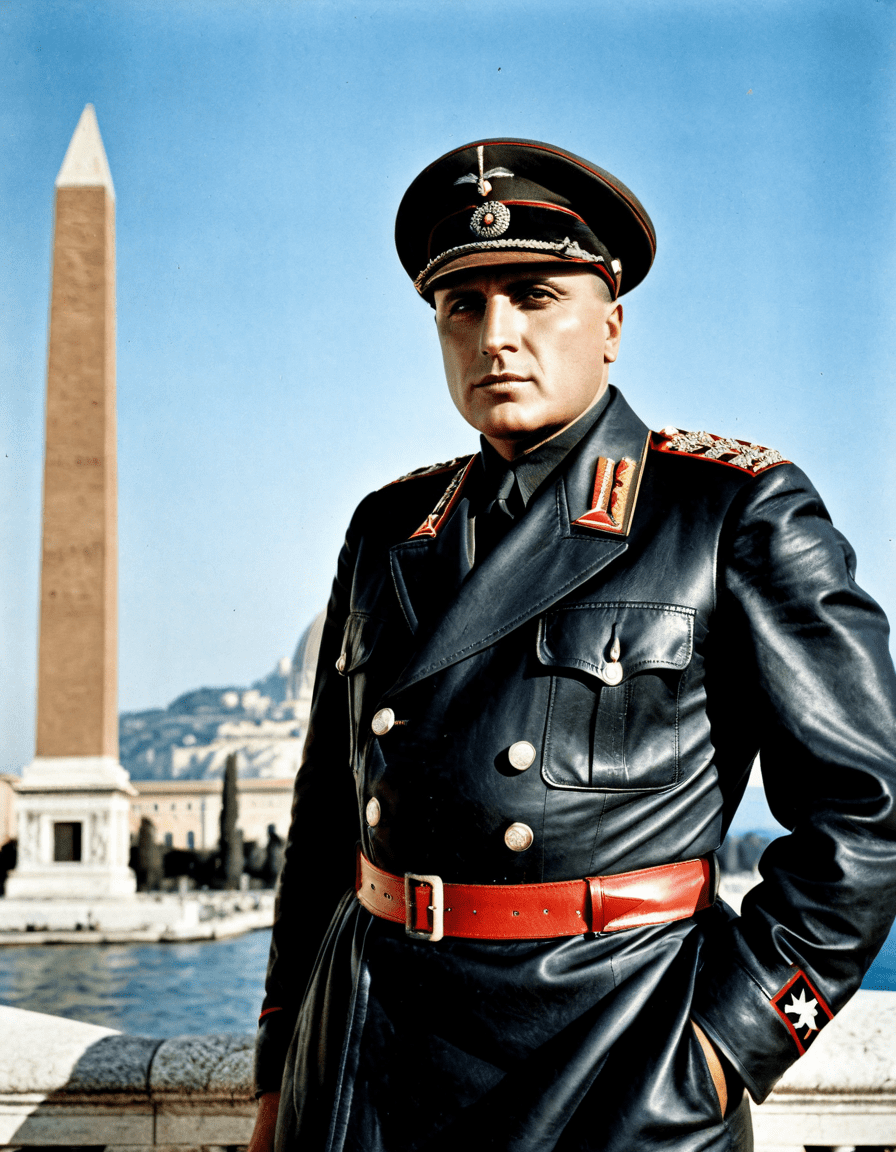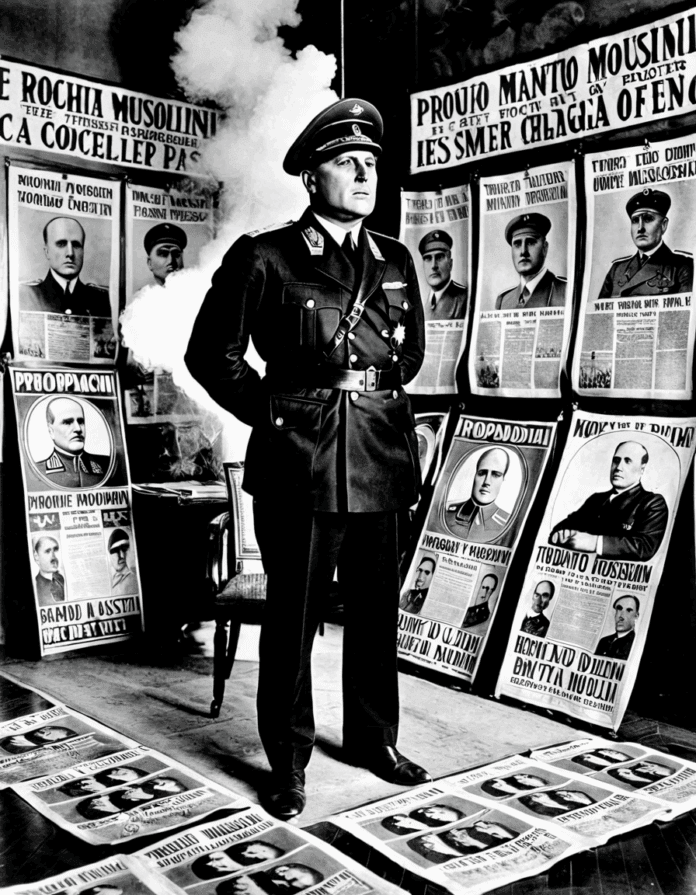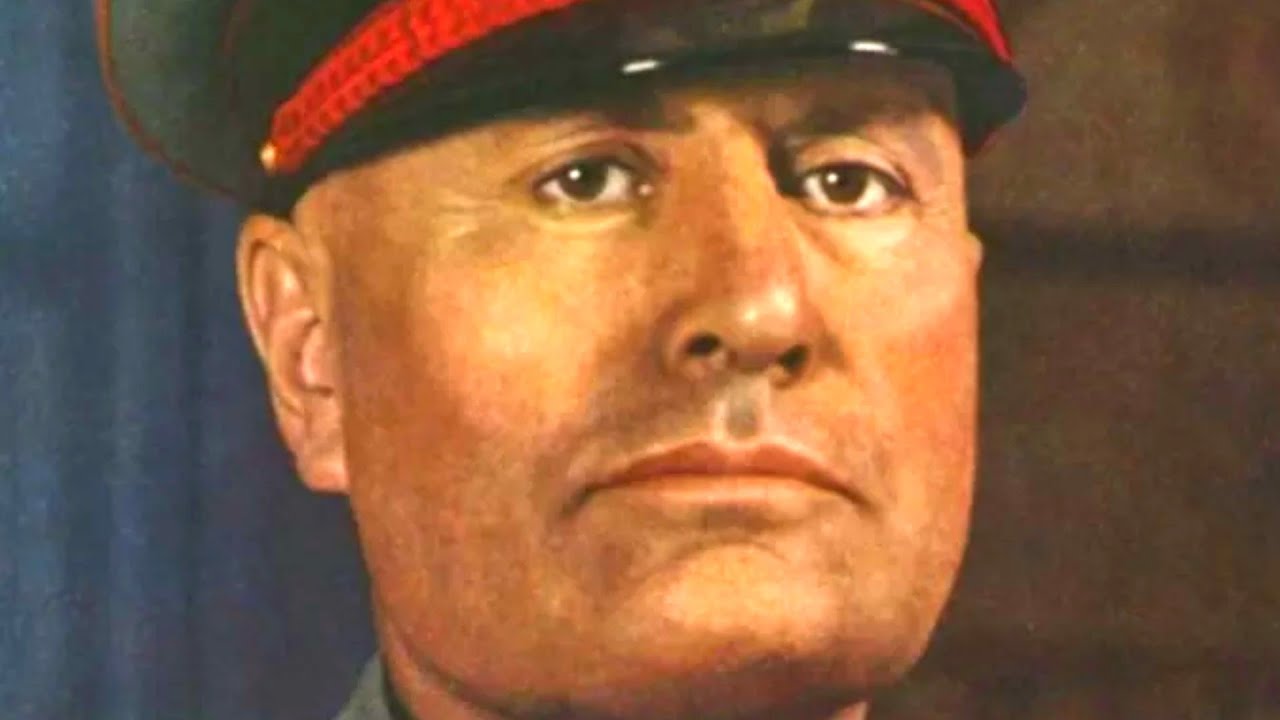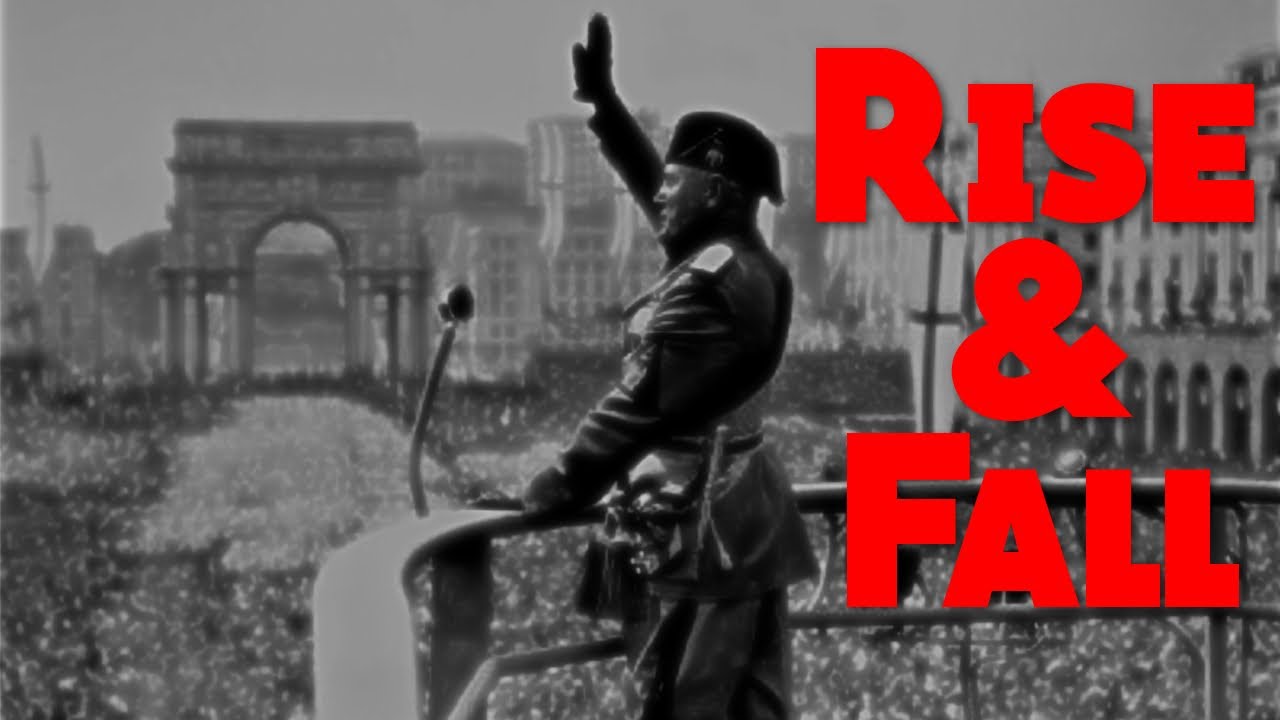Ah, Benito Mussolini—often remembered as the fiery face of Italian fascism, this guy sure knew how to stir the pot! Born in 1883 in Predappio, Italy, Mussolini came from a family with a strong socialist background. His childhood, largely shaped by his father, a socialist blacksmith, and his teacher mother, fueled his early thirst for power and political engagement. Quick to pick up on the currents swirling around him, young Mussolini embraced education, becoming a schoolteacher himself but soon turned his gaze toward more ambitious political horizons. His passion for socialism was palpable, the early writings he authored painted a vivid picture of the ideologies that would steer him into the chaotic waters of dictatorship.
The Formation of Fascism: Mussolini’s Political Doctrine
As the 20th century unfolded, Italy was in a state of upheaval. This chaos was Mussolini’s playground, allowing him to establish the Fascist Party in 1919. He masterfully blended nationalism and authoritarianism, promoting Italian superiority like nobody’s business. This ideology wasn’t merely a hobby; it was Mussolini’s blueprint for a stronger Italy, crafted against the backdrop of post-World War I disillusionment.
Mussolini’s promise of revitalization appealed to weary citizens. He targeted the middle and upper classes, portraying himself as a barrier against the rising tide of socialist movements. Militarism formed another cornerstone of his doctrine. He envisioned a robust military ready to reclaim Italy’s lost glory, and thus began his totalitarian regime. Talk about a wild ride!
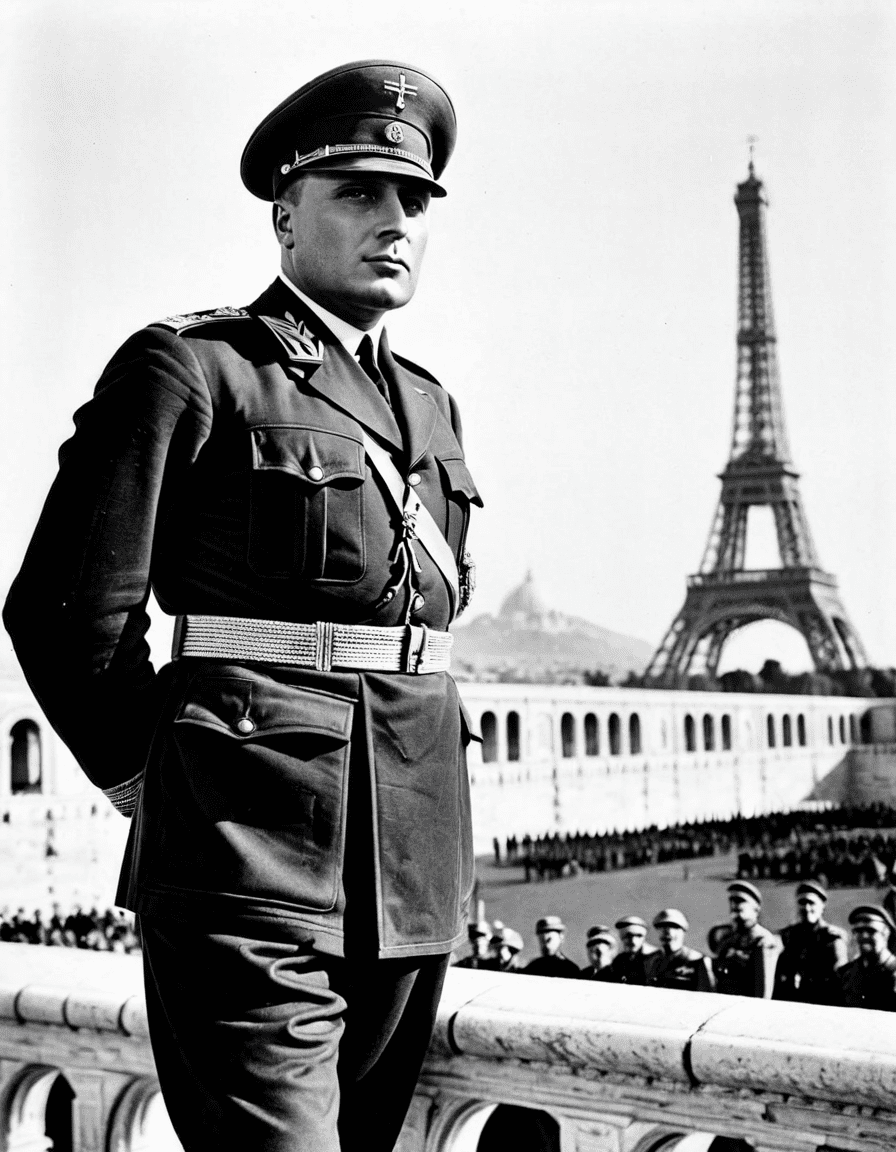
Benito Mussolini’s Path to Power: Major Events That Defined His Rise
Mussolini’s rise wasn’t all smooth sailing, but he sure had a flair for drama! The March on Rome in 1922 became a watershed moment. This theatrical display of power prompted King Victor Emmanuel III to acknowledge Mussolini, inviting him to form a government amidst chaos. Talk about an entrance!
Once he took office, Mussolini wasted no time consolidating power. He enacted the Acerbo Law, which secured his parliamentary majority while conveniently sidelining any pesky opposition. Propaganda? Oh, he didn’t just dabble in it; he poured everything into creating a cult of personality that had him dubbed the “savior of Italy.” The way he sold himself to the Italian populace was reminiscent of Hollywood’s biggest stars—utterly captivating and yet supremely dangerous.
The Cultural Revolution: How Benito Mussolini Shaped Italian Society
Mussolini didn’t stop at politics; he sought to reshape Italian culture itself. His regime initiated a cultural revolution, aiming to align art, literature, and media with fascist ideals. Artists were pressured into producing works that glorified the state—think of it as state-sponsored talent shows, but with less glitter and more propaganda.
Censorship ran rampant, with creative freedom tossed out the window. Figures like Margherita Sarfatti became champions of fascist aesthetics in the art scene. In schools, education underwent a dramatic makeover. The curriculum shifted to instill nationalistic and militaristic values in the youth, effectively grooming the next generation of loyal subjects. And let’s not forget the stark emphasis on motherhood; Mussolini ideologized women’s roles, promoting the idea that motherhood was a patriotic duty.
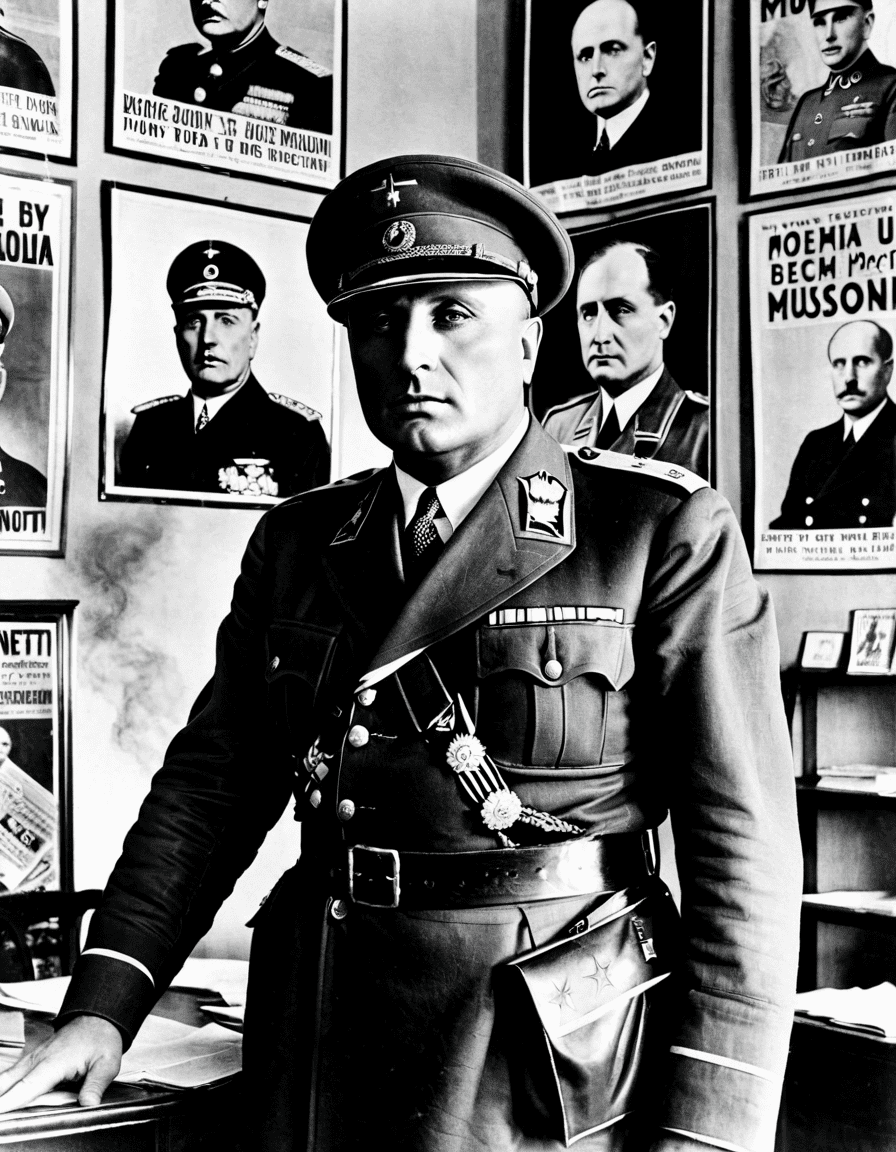
Benito Mussolini and International Relations: The Impact on World Politics
Now, let’s talk about Mussolini’s rather, shall we say, “interesting” take on foreign policy. His bond with Hitler solidified an alliance that changed the course of history, forming the Axis powers that would wreak havoc during World War II. Mussolini’s desire to expand Italian influence led him to invade Ethiopia in 1935—not exactly a highlight in humanitarian relations, but it sure gave his regime a boost in national pride…at least initially.
Mussolini also courted the Vatican, striking the Lateran Treaty of 1929 which improved relations between the state and the Catholic Church. This nifty move solidified his grip on power, endowing him with an aura of legitimacy that many dictators can only dream of. Italy may have been a small player on the world stage, but Mussolini surely made big waves.
The Downfall: Factors Leading to Benito Mussolini’s Fall from Power
Every rollercoaster ride has its shocking twists, and Mussolini’s story was no different! Despite his earlier successes, cracks began to show. Military failures, especially during engagements in Greece and North Africa, sapped both morale and support. By 1943, as Italy flipped sides in World War II, Mussolini was ousted by the king, marking a significant turning point. His own closet of skeletons became a tidal wave of disaster—there’s only so much a tyrant can do before the tide turns!
The rise of partisan resistance also spelled trouble. As Allied forces invaded Italy, underground movements gained traction, culminating in Mussolini’s imprisonment and eventual execution in 1945. What a dramatic end for a figure who once towered over his nation.
The Legacy of Benito Mussolini: A Cautionary Tale for Future Generations
Benito Mussolini stands as a multifaceted study of how power, ideology, and authoritarianism intersect. His blend of manipulation, propaganda, and violence remains an important chapter in world history that political scientists study to this day. Mussolini is a stark reminder of how rhetoric can reshape national identity and justify acts of aggression while revealing the inherently fragile nature of power detached from democratic principles.
So, what can we learn from Mussolini’s legacy? Modern societies must tread carefully, keeping an eye out for the warning signals that accompany totalitarianism. Charismatic leaders can often mask authoritarian intentions behind a thin veneer of charm. The story of Mussolini isn’t just history; it’s a cautionary tale echoing through the ages, urging us to remain vigilant against the shadows of tyranny.
And there you have it, folks! Benito Mussolini’s rise and fall— a blend of drama, political cunning, and a wild ride through history that we can’t ignore. If you’d like to keep that engaging momentum alive in today’s storytelling — through films or series like Mythic Quest or even classics like Major League — remember the importance of understanding the past as we create the future. Just like in cinema, history has a fascinating ability to repeat itself, which is why it’s essential to keep those lessons close to heart.
Benito Mussolini: Fascinating Facts and Trivia
A Dictator’s Early Days
Benito Mussolini wasn’t always the firebrand leader we know from history. Born in 1883 in a small village, he initially had aspirations of becoming a teacher, even working as one at a Chaminade High school before diving into politics. Surprisingly, he started his career as a socialist journalist, which probably played a role in shaping his later ideologies. His love for literature and philosophy fueled his ambitions, ultimately leading him towards the controversial path he would take. Fun fact: many wouldn’t guess that Mussolini once dabbled in the world of sports journalism, prompting an interest in athletics that paralleled his political rise.
The Transformation into Il Duce
Mussolini’s transformation from an idealist to dictator is almost cinematic. His rise involved a lot of spectacle and public appearances reminiscent of a cast from Scary Movie 2—large rallies and street performative tactics made him a captivating figure. First gaining power in the 1920s, he adopted the title of “Il Duce,” which means “The Leader.” Ironically, his persona relied on a grand, looming presence at public gatherings, similar to a dramatic plot twist in a movie; people didn’t just follow him—they were drawn in almost against their will. His methods were polarizing, much like how the fate of a dramatic character can sway in film, leaving audiences either enchanted or horrified.
His Legacy and Impact
The legacy of Benito Mussolini is complex and debated to this day. Some compare his authoritarian rule to a tragic character in a drama who believes in his cause wholeheartedly. Just as bands like Lynyrd Skynyrd evoke deep feelings about Southern pride, Mussolini ignited intense nationalism in Italy, though often at a catastrophic cost. In popular culture, his role is frequently reexamined, reshaping the narrative of fascism, just like how a sequel like A Simple Favor 2 can alter the perception of the original story. By digging into the anecdotes from locations like Duluth where fascist sympathizers once gathered, we can unravel the impact Mussolini had and how it resonates through history.
In understanding Mussolini, we can find that even a figure as controversial as he was still holds lessons applicable today about power dynamics and public influence. Just as people today might adopt smart home technologies, like a Schlage smart lock for security, Mussolini’s grip over Italy was about creating an illusion of safety through control. It’s a fascinating, albeit sobering, reminder that leadership can come with profound implications, forming a narrative that continues to captivate historians and the curious alike.
